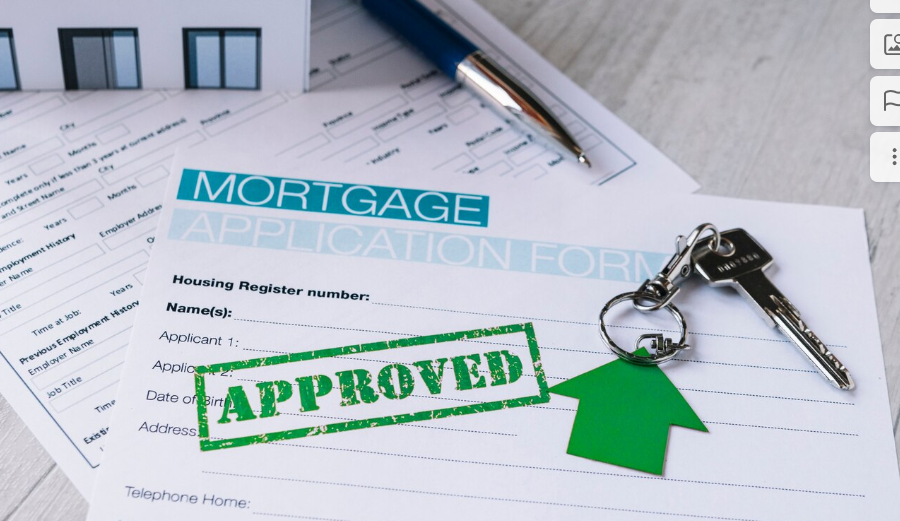Selling a Home with Mold or Asbestos in Florida
Navigating Disclosure, Cleanup, and Selling Without Going Broke
Florida’s warm, humid climate can be a paradise for beach lovers—but it’s also the perfect storm for mold growth. And if your home was built before the 1980s, there’s a decent chance asbestos could be lurking behind the walls or in the ceiling tiles. Not exactly ideal when you're trying to sell.
So what happens if you're selling a home with mold or asbestos in Florida? Can you still close the deal? Will you have to tear the place apart? Will buyers run the other direction?
Good news—you can still sell the property. But there are a few things you’ll need to understand first, especially when it comes to Florida’s disclosure laws, remediation options, and smart alternatives like selling to a cash buyer who won’t be scared off by the “M” or “A” words.
Let’s walk through it all.
First Things First: What Does Florida Law Say?
If you’re selling a home in Florida, you’re legally required to disclose any known material defects—and yes, mold and asbestos fall into that category.
Here’s what that means for you:
- You don’t have to go hunting for issues with mold or asbestos unless you suspect a problem.
- But if you know there’s mold, or you’re aware that the home has asbestos-containing materials, you must disclose it to the buyer—preferably in writing.
Trying to hide it isn’t just shady, it can backfire legally. A buyer who discovers hidden mold or asbestos after the sale might sue for misrepresentation, forcing you into court long after you thought the house was behind you.
Real-life example:
A seller in Tampa once tried to patch over a moldy bathroom wall with fresh paint. The buyer discovered the issue during inspection, backed out of the sale, and reported the seller. That home sat on the market for another 6 months—until it was sold at a discount to a cash buyer who handled the cleanup.
What Buyers Are Thinking (and Why That Matters)
Most traditional buyers—especially those using bank financing—are going to be extremely cautious when mold or asbestos enters the picture.
Why? Because:
- Mold can trigger health problems and raise red flags during inspections.
- Asbestos requires special removal procedures, which can be pricey and time-consuming.
- Lenders may refuse to approve a loan for a home with unresolved environmental hazards.
That’s why many sellers either try to fix the issue before listing… or skip the traditional route entirely.
Option 1: Remediate Before Selling (If You Can Afford It)
If you’ve got the time and the budget, removing the mold or asbestos before listing the property might help you attract more buyers—and potentially command a higher price.
Here’s what that looks like:
Mold:
- Hire a licensed mold assessor to test and identify the extent of the issue.
- Work with a professional remediation company to remove mold-affected materials and stop the moisture source.
- Cost can range from $500 to $6,000, depending on how bad it is.
Asbestos:
- Have the materials tested by a professional lab.
- If positive, contact an abatement specialist to remove or encapsulate the asbestos.
- Expect costs anywhere from $1,500 to $20,000+, depending on how much is present and where.
Yes, it's expensive. And no, not every seller is in the position to pay out-of-pocket just to make a sale.
Option 2: Sell As-Is to a Cash Buyer
If you’re not up for spending thousands and waiting weeks for remediation, there’s another option: sell your home as-is to a cash buyer who buys houses with mold or asbestos.
Companies like 904 Home Buyer specialize in exactly this.
- We don’t require inspections, repairs, or cleaning.
- You won’t have to stage the house, fix anything, or wait for a loan to get approved.
- We’ll make a fair, no-obligation cash offer—and if you like it, we can close in as little as a week.
And yes, we still buy houses with black mold in the bathroom, ceiling tiles with asbestos, and funky-smelling basements that need some TLC.
Quick note:
Many sellers actually walk away with more in their pockets because they skip the agent commissions, contractor bills, and holding costs.
What Disclosure Looks Like with a Cash Buyer
You’re still legally required to disclose known issues, even in a cash sale. But experienced buyers won’t be surprised or turned off.
At 904 Home Buyer, we’ve worked with dozens of sellers who were upfront about their property’s condition. We get it. Homes age. Things happen. It doesn’t scare us off—it just helps us price the deal fairly and honestly.
And because there’s no lender in the picture, there are no inspections required by a bank and no “Sorry, this home doesn’t qualify for a loan” moments at the last minute.
Real-World Example: No More Mold, No More Stress
We recently helped a couple in Gainesville sell their family home after years of water damage in the crawl space had led to mold growth. They couldn’t afford the $12,000 remediation quote they’d received, and their listing agent was struggling to find buyers.
We stepped in with a cash offer that covered their moving costs and cleared their mortgage. No cleaning. No repairs. No more stress.
They sold, moved closer to family, and didn’t lose sleep wondering how long their home would sit on the market.
What If You Don’t Know If There’s Mold or Asbestos?
If you’re unsure whether there’s an issue, that’s okay too.
You’re not required to test for mold or asbestos before selling, but you should answer honestly if a buyer asks about water damage, renovations, or the age of materials.
For example:
- If the roof has leaked or the A/C has overflowed recently, that could lead to mold.
- If the home was built before 1980 and hasn’t been updated, asbestos might be present in insulation, flooring, or ceiling texture.
When in doubt, disclose what you
do know—and let your buyer decide what to do from there.
Final Thoughts: You’re Not Stuck
Dealing with mold or asbestos doesn’t mean your house is unsellable. It just means you need to be strategic.
If you’ve got the money and time, remediation might be worth it. But if you're stretched thin, tired of waiting, or just need to move on, selling as-is to a trusted cash buyer can give you a way out—without blowing your budget or dragging out the process.
904 Home Buyer buys homes in any condition across Florida, including those with mold, asbestos, or other environmental issues. We’ll walk you through the options, make an honest offer, and help you move on with no surprises and no pressure.
Need a clean break from a not-so-clean home?
Reach out today—we’re ready to help.

Salim Omar
Salim is a straight-talking CPA with 30+ years of entrepreneurial and accounting experience. His professional background includes experience as a former Chief Financial Officer and, for the last twenty-five years, as a serial 7-Figure entrepreneur.









